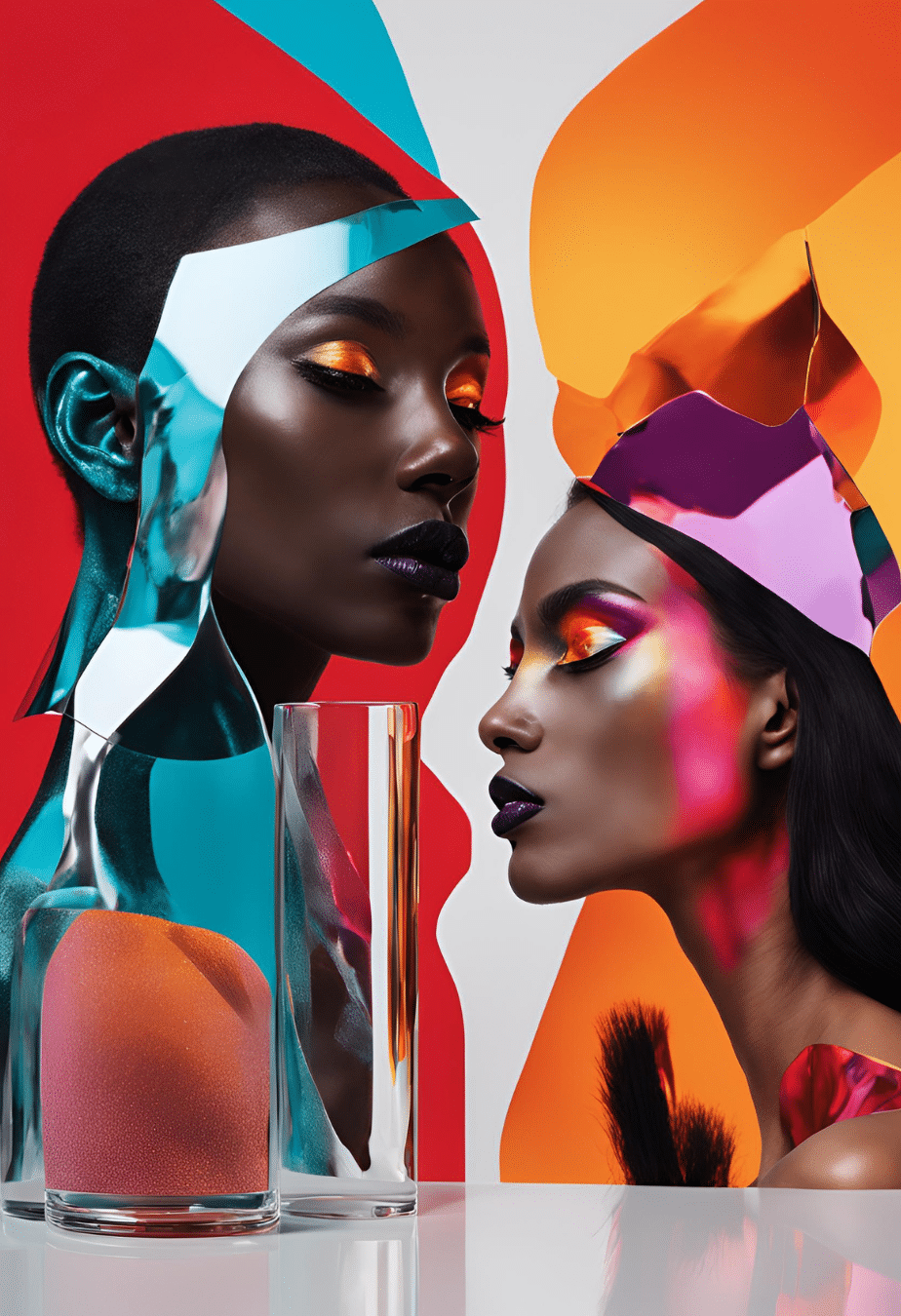Through the Looking Glass: Self-Image & The Power of Love

They say fashion tells a story, but for Dina Yassin,…
There comes a moment—sometimes in the glow of a mirror, sometimes in the reflection of another’s eyes—where we’re forced to confront two versions of ourselves: who we are and who we think we should be. It’s in that delicate space between perception and reality, expectation and truth, that self-image and love collide.
Love, after all, isn’t just something we give or receive—it’s something we embody. It shapes us, molds us, and yet, for so many, the way we love ourselves is tangled up in distorted reflections, cultural conditioning, and the weight of external validation.
But what if we looked closer? What if, instead of chasing an ideal, we stepped through the looking glass and saw ourselves—not as the world expects us to be, but as we truly are?
The Mirror & The Mask: Rewriting Self-Perception
For centuries, self-image has been dictated by mirrors—both literal and metaphorical. In ancient mythology, Narcissus drowned in his own reflection. In fairytales, the mirror decided who was fairest of them all. And in today’s world? The looking glass isn’t just framed in gold—it’s pixelated, filtered, and always refreshing.
But self-image isn’t just about how we look—it’s about how we see ourselves. It’s the stories we carry, the beliefs we internalize, the silent rules we follow without even realizing it. It’s the way a woman sees strength in her mother’s hands, the way a man questions the version of masculinity passed down to him, the way a child’s self-worth is shaped by the love—or lack of it—they receive.
Culture has a way of dictating how we measure ourselves. In some spaces, confidence is celebrated; in others, humility is mistaken for erasing yourself entirely. We are taught to shrink or shine, to stand out or blend in, to take up space only when it is deemed acceptable.
But the moment we stop defining ourselves through someone else’s gaze, we step closer to authenticity.
Through Their Eyes: How Love Reframes Us
If self-image is shaped in solitude, it is tested in love. Because love—real love—holds up a different kind of mirror. One that doesn’t just reflect the most curated, perfected version of ourselves but forces us to see what’s real.
To be loved—not for who we pretend to be but for who we actually are—is one of the most radical experiences we can have. It strips away the performance. It makes us ask: If they can love me like this, why can’t I?
But this isn’t just about romance. Love takes many forms. The friend who reminds you who you are when you forget. The stranger who sees you before they judge you. The mentor who shows you a version of yourself you haven’t yet dared to embrace. Love doesn’t just reflect back who we are—it reveals who we could be.
And yet, in so many cultures, self-worth is still tethered to approval—to beauty, success, achievement. But the love that lasts? The love that reshapes us? It’s the kind that doesn’t need a polished version of you to exist.
Breaking the Glass: The Power of Authenticity
Stepping through the looking glass means shattering illusions—about self-worth, about perfection, about what it really means to be “enough.” It’s about letting go of the idea that love is something you have to earn by being more likable, more presentable, more “worthy.”
This isn’t about self-love as an aesthetic. It’s about self-acceptance as a practice. It’s about:
- Wearing what makes you feel alive, not just attractive.
- Speaking up even when your voice shakes.
- Loving your body not just in its best light, but in the soft shadows of reality.
- Showing up for yourself first, so you don’t have to beg others to do it for you.
Because love—real love—starts where performance ends.
Reflections That Matter
At the end of the day, the most important looking glass isn’t the one that hangs on the wall or sits in our pockets. It’s the one we hold inside. The one that reflects back not an image, but an essence.
To redefine self-image is to redefine love. It is to say:
“I am not my flaws. I am not the sum of other people’s opinions. I am not just the reflection I see—I am the depth behind it.“
And once we truly see ourselves, love isn’t something we chase.
It’s something we finally allow in.
What's Your Reaction?
They say fashion tells a story, but for Dina Yassin, it’s more than just storytelling—it’s an art, a science, and a little bit of magic. As the Co-Founder, Chief Storyteller, and Editor-in-Chief of GAZETTA—among many other titles—she’s the woman behind the words, the visionary shaping narratives, and the creative force redefining luxury fashion journalism in the digital age. With over two decades of experience in luxury brand consulting, creative direction, and trend forecasting, Dina has worked with some of the most coveted names in the industry—think Van Cleef & Arpels, Kenzo, Bvlgari, Hermès, and Chloe—all while keeping her finger firmly on the pulse of what’s next. Her work has graced the pages of Vogue Arabia, Harper’s Bazaar, Condé Nast Traveler, Mojeh Magazine, Vanity Fair, Marie Claire, 7 Corriere, and The Rake—among many other top-tier titles—solidifying her reputation as a fashion and luxury thought leader. But here’s the twist—Dina isn’t just reporting on the future; she’s creating it. Under her leadership, GAZETTA introduced EVVIE 7, an AI-driven journalist pushing the boundaries of editorial innovation. Because in a world where algorithms influence aesthetics as much as designers, Dina ensures GAZETTA stays one step ahead, seamlessly blending technology, culture, and high fashion into a platform that speaks to the modern, forward-thinking luxury consumer. Beyond her editorial expertise, Dina is a renowned luxury brand consultant, trend strategist, and creative powerhouse who thrives at the intersection of fashion, culture, and digital storytelling. Whether she’s consulting on luxury branding, forecasting emerging trends, directing high-profile fashion campaigns, or curating immersive experiences, she’s always asking the big questions—What’s next? Who’s shaping it? And most importantly, how do we make it unforgettable? One thing is certain: Dina Yassin is always at the forefront of what’s next.



